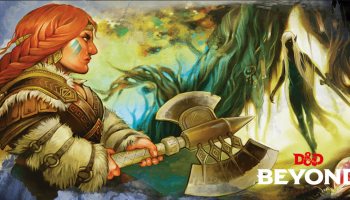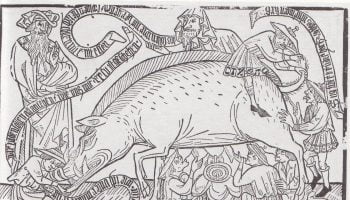On January 2nd of this year, The Economist published an article titled “Medieval memes: The far right’s new fascination with the Middle Ages”. The most surprising part of that article was not that neo-fascist, neo-Nazi, white supremacist nationalists (i.e. the self-described “alt-right”) love the Middle Ages, but that The Economist is so late to this revelation. Right-wing white supremacists, both in Europe and in the US, have held a special place for in their hearts for the Middle Ages since at least the beginning of the nineteenth century.
For over two centuries, American slaveholders, the Knights of the Ku Klux Klan, Nazi Germany, and today’s white supremacist self-styled “alt-right” have all promoted a twisted idea of the Middle Ages that props up their white-supremacist fantasies. And unfortunately, their view of the Middle Ages has trickled into the groundwater of the broader popular historical consciousness. Depictions of people of color in films, TV series, and video games about the Middle Ages are practically nonexistent. Those that do show people of color in the Middle Ages typically only reinforce this paradigm. For instance, the 2001 film Black Knight makes comedic hay out of the idea being black is at odds with being a knight. The Lord of the Rings films (and books) courted controversy by depicting people of color as dangerous outsiders fighting in thrall to the Dark Lord.
We can do better than this.
But the truth is, these Middle Ages are not the Middle Ages. The whites-only Middle Ages is vastly different from the medieval world that many scholars would recognize. And according to a study I conducted in 2008-2009, young people in the US and UK think of the Middle Ages as existing only in England, Britain, or Western Europe. Some even instinctively have trouble seeing medieval Muslims as “civilized,” even in the face of contradictory evidence such as the many advances in science and technology in the medieval Muslim world. But scholars know that the medieval world was not limited only to England or Western Europe. And even if it were limited to only Western Europe, it would still feature the stories of a number of people of color.
A New Public Medievalist Series
Over the past generation, a new crop of scholars have looked at questions of race in the Middle Ages much more carefully than before. They have found that, among many other things, medieval people understood ideas of “race” fundamentally differently than we do today. Over the course of the month of February, as a celebration of Black History month, The Public Medievalist will be publishing a series of essays on several facets of this topic, showcasing the newest work on this important subject. The goal of this series is to expose and tear down the white-supremacist-tainted version of the Middle Ages, and to lift up some of the stories of those medieval people of color you may not have heard of before.
But before we begin in earnest—a note about racism and white supremacy. This series is intended to challenge some deeply-held beliefs. Racist and white supremacist ideas about the past have lingered in our culture. They are not limited to dyed-in-the-wool racists or card-carrying members of the Klan. They can seem natural and normal. That makes them a fundamental part of institutionalized racism as it exists today, since the past forms and informs the foundations of the present.
None of us are fully immune to the ideas of the past we grew up with. We see the past the way it has been presented to us in school, in history books, and in popular culture. I am not immune; no one is. And new information can seem, at first, like an assault, not just on the past, but on our past, our values, or even ourselves. Our historical consciousness is always tainted by our prejudices, even—especially—our deep-seated ones. Reexamining our ideas about the past in light of cutting-edge scholarship can help us to shake off antiquated ideas that neither reflect historical realities nor who we are. Improving our understanding of the past can be difficult, but that makes it no less necessary to inoculate ourselves from those who would misuse the past to promote their hateful agendas in the present.
Continue to Part I: A Brief History Of A Terrible Idea: The “Dark Enlightenment”, or find the full table of contents for the series here.
The Public Medievalist does not pay to promote these articles, so we would love it if you shared this with your history-loving friends! Click to share with your friends on Facebook, on Twitter, or Tumblr.





There are many pictures of Moors in Medieval pictures and they were quite the fashion as trumpeters at tourneys, if the pictures reflect reality. I feature one such in my short stories: https://www.smashwords.com/books/view/571670 My charecter is from Ceylon.
i don’t think anyone is supposed to think of ‘the black knight’ as realistic it’s inclusion therefor is rather unnecessary. it seems odd that the example used of PoC mistreatment in medieval fiction is from a comedy/satire film.
while it is true that there is more the the medieval period then England and Europe, much of the fiction is set there and the majority of the consumers are descendants from those areas, it only makes sense for fiction to pander to that majority.
just my $0.02
There are many medieval paintings where black and brown people are portrayed as equals or in a positive way, look e.g. on Hieronymus Bosch “The gardens of earthly delights”. Another one I saw in Madrid museum shows a black bishop together with white. Other examples seen from Rubens and many others.
Thanks for this valuable series – I’ve got a History class reading the posts this week.